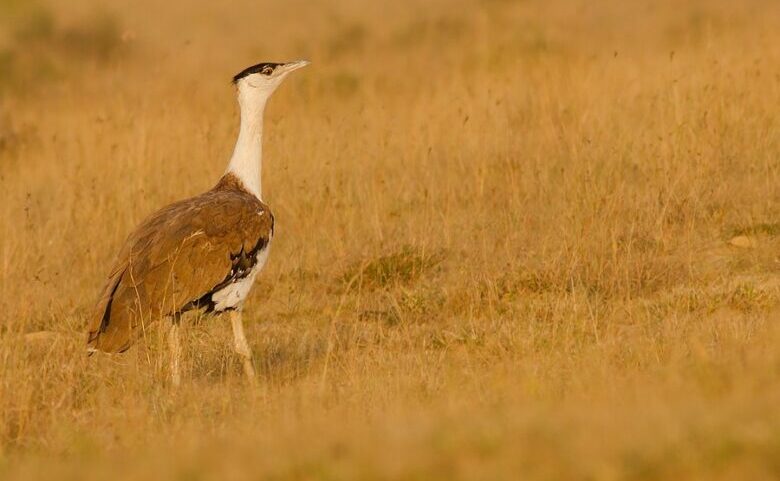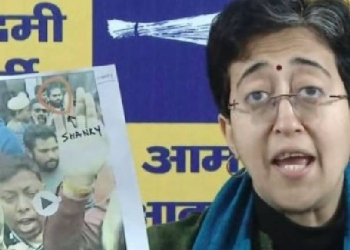New Delhi: The Supreme Court on Wednesday told Attorney General R. Venkataramani to check with the Ministry of Environment, Forest and Climate Change to explore the possibility of having a ‘Project Great Indian Bustard’ (GIB) on the lines of ‘Project Tiger’ in order to save the endangered bird species.
Senior advocate Shyam Divan, representing petitioner and retired IAS officer M.K. Ranjitsinh, contended before a bench headed by Chief Justice D.Y. Chandrachud that despite directions from the apex court for all overhead power lines to be undergrounded within a year, it has not been done, and as a consequence, some more GIBs have died due to electrocution, as many as many seven this year.
He added that under-grounding of power cables has started in Gujarat, which is a positive development, but the same is not happening in Rajasthan where maximum GIBs are found.
Divan contended that diverters have to be installed and also maintained, as they may fall off.
The Centre’s counsel contended that the composition of the committee should be modified to include domain experts — additional secretary of renewable energy and the chief operating officer of Central Transmission Utility of India.
The bench said right now the composition of the committee should not be tinkered. The Centre was represented by AG and Additional Solicitor General Aishwarya Bhati.
The top court sought reports from the chief secretaries of Rajasthan and Gujarat in six weeks on installation of bird diverters in the priority areas. It also sought examination of the total length of transmission lines, where electrical wires would have to go under-ground to ensure the birds do not die of electrocution.
Concluding the hearing in the matter, the bench told the Centre’s counsel to check with the Ministry of Forest and Environment whether it is possible to have a ‘Project Great Indian Bustard’ on the same lines of ‘Project Tiger’.
The bench, also comprising justices A.S. Bopanna and V. Ramasubramanian, said, “We had the Project Tiger… Is it not possible to have some mechanism to bring focus on having Project Great Indian Bustard?”
The top court was hearing a PIL seeking several directions to save the GIB.
It had set up a three-member committee to assess the feasibility of laying high-voltage underground power cables. The committee consisted of environmental scientists Rahul Rawa and Sutirtha Dutta, and Devesh Gadhavi, Deputy Director of Corbett Foundation.
Earlier, the apex court had directed Gujarat and Rajasthan governments to underground power cables, wherever feasible, and install bird diverters in priority areas where the birds live.
The Great Indian Bustard, or Ardeotis nigriceps, is listed in Schedule I of the Indian Wildlife (Protection) Act, 1972 and as ‘Critically Endangered’ on the IUCN Red List and the National Wildlife Action Plan (2002-2016). A large bird of about 1 metre in height, the GIB has a wing span of almost 2 metres with the adult weighing between 15 kg and 18 kg.
In 2018, there were only 150 GIBs left in the country, 122 of them in the Jaisalmer area of Rajasthan. The remaining 28 were sighted in Gujarat, Maharashtra and Karnataka. However, wildlife conservationists have claimed that the number of GIBs in the wild is below 100 as of 2022.
(IANS)




















